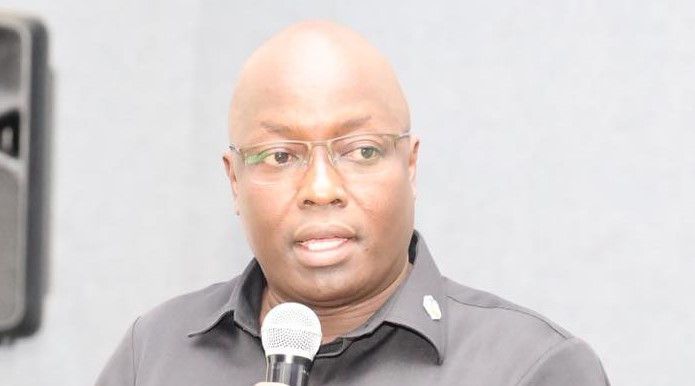Northern Bahr el Ghazal Governor Simon Ober Mawut has pledged to pardon activist Dut Kuot Akook, who was sentenced to 14 months in prison for defamation last month, amid accusations that the governor used state power to influence the court ruling.
Kuot, an employee of the state’s finance ministry, was first arrested Feb. 26 and detained at a national security facility over an article criticizing the state government’s failures.
In South Sudan, defamation is addressed through the Penal Code Act 2008. Section 289 defines criminal defamation as making statements intended to harm someone’s reputation, punishable by up to two years in prison, a fine, or both.
Speaking at a Northern Bahr el Ghazal community meeting in Juba on Saturday, governor Ober said he would initiate Kuot’s release upon returning to the state capital, Aweil.
“His writing amounted to defamation, and he was taken to jail. I just want to prove that what he has been writing is a lie. But when I return to Aweil, I will do the process for releasing him from prison so that he can keep his writing while known to everyone in Mading Aweil. This is what I want to clarify,” Ober said.
He stated that while leaders should accept criticism, attacking their privacy without evidence constitutes defamation. Ober said Kuot was asked to provide proof that the governor had misused civil servant salaries but failed to do so.
“He was asked to present evidence that I had taken civil servants’ [salaries] within two hours, but he failed. That is why he was taken to jail for defamation,” Ober said.
“Invading my privacy to say that Governor Ober has sold the properties of the state, and he took an amount of money — this is a great difference from someone who said that Governor Ober must be removed from the gubernatorial seat.”
Nyeng Deng, a relative of Kuot, welcomed the governor’s announcement but said the matter should have been resolved through family mediation.
“As a leader, he would have reached out to the elders and family members of Dut Kuot Akook, so that he could hear the voices of the family members. The bad part was that he arrested him, detained him for several days, and then jailed him for one year without listening to our voices as family members,” Deng said.
Bulis Nguak Deng, leader of the Northern Bahr el Ghazal Civil Society Organization Network, said the governor’s decision aligns with their calls for reconciliation.
“This is what we have been calling for since the first arrest as a civil society organization network. We call on the governor to forgive and then cancel the case from the very beginning, because we have seen now that it was a political case, and the activist was expressing his view, and this was guaranteed by the constitution of South Sudan,” Nguak said.
He urged the governor to formally declare the pardon and ensure broader protections for free expression.
“Let him come to declare the forgiveness, and not only the forgiveness of the particular activist — let him come and declare the civic and political space at the state level, so that people can exercise their civil and political space without intimidation and fear of arrest,” Nguak said.




